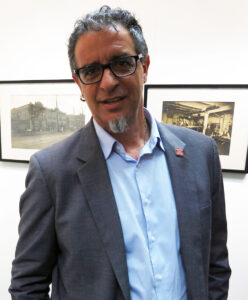 The Tutto Italiano! radio show interviewed Dean Tamburri Sunday, May 15, 2022. Here is the episode description:
The Tutto Italiano! radio show interviewed Dean Tamburri Sunday, May 15, 2022. Here is the episode description:
“Join us with guest Anthony Julian Tamburri, Dean of the John D. Calandra Italian American Institute (Queens College, CUNY) and Distinguished Professor of European Languages and Literatures. His research interests lie in literature, cinema, semiotics, interpretation theory, and cultural studies. Dr. Tamburri has divided his intellectual work evenly between Italian and Italian/American studies, authoring sixteen books and more than one hundred essays on both subject areas in English and Italian.”
And you can listen to the complete episode here: https://radiokingston.org/en/broadcast/tutto-italiano/episodes/anthony-julian-tamburri-dean-of-the-john-d-calandra-italian-american-institute

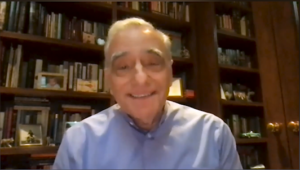 Martin Scorsese believes strongly in the need to conserve sheet music from the golden age of Italian song. Scorsese spoke via Zoom at the Center for Italian Modern Art (CIMA) when Calandra’s Dr. Joseph Sciorra gave a short presentation there on the topic.
Martin Scorsese believes strongly in the need to conserve sheet music from the golden age of Italian song. Scorsese spoke via Zoom at the Center for Italian Modern Art (CIMA) when Calandra’s Dr. Joseph Sciorra gave a short presentation there on the topic.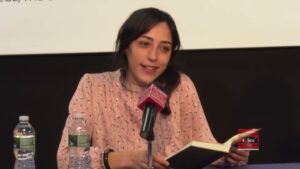
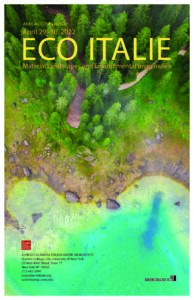
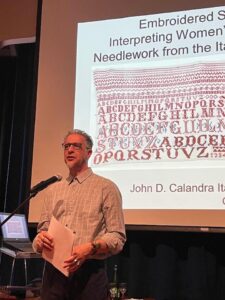
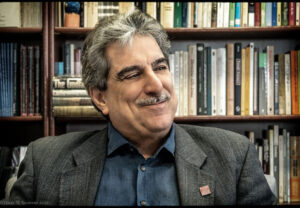
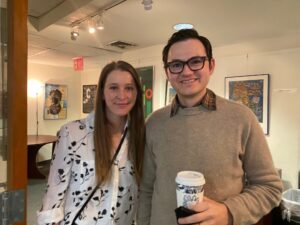 Our first in-person events in our regular series took place last night. Calandra hosted filmmaker Mark Pedri and producer Carrie McCarthy (pictured here) for a screening of Dear Sirs (2021) as part of the Documented Italians series. We had a full house in attendance (in accordance with our COVID protocols, everyone showed ID and vaccination cards upon entering, and the crowd was limited to twenty audience members). For more information about all our spring series events, click
Our first in-person events in our regular series took place last night. Calandra hosted filmmaker Mark Pedri and producer Carrie McCarthy (pictured here) for a screening of Dear Sirs (2021) as part of the Documented Italians series. We had a full house in attendance (in accordance with our COVID protocols, everyone showed ID and vaccination cards upon entering, and the crowd was limited to twenty audience members). For more information about all our spring series events, click 